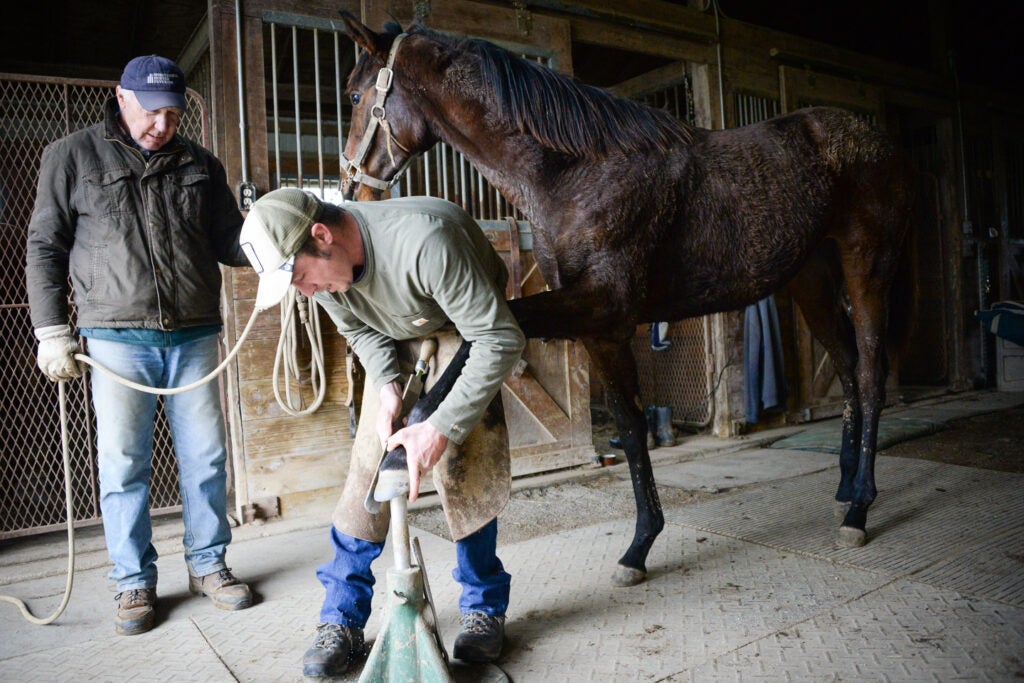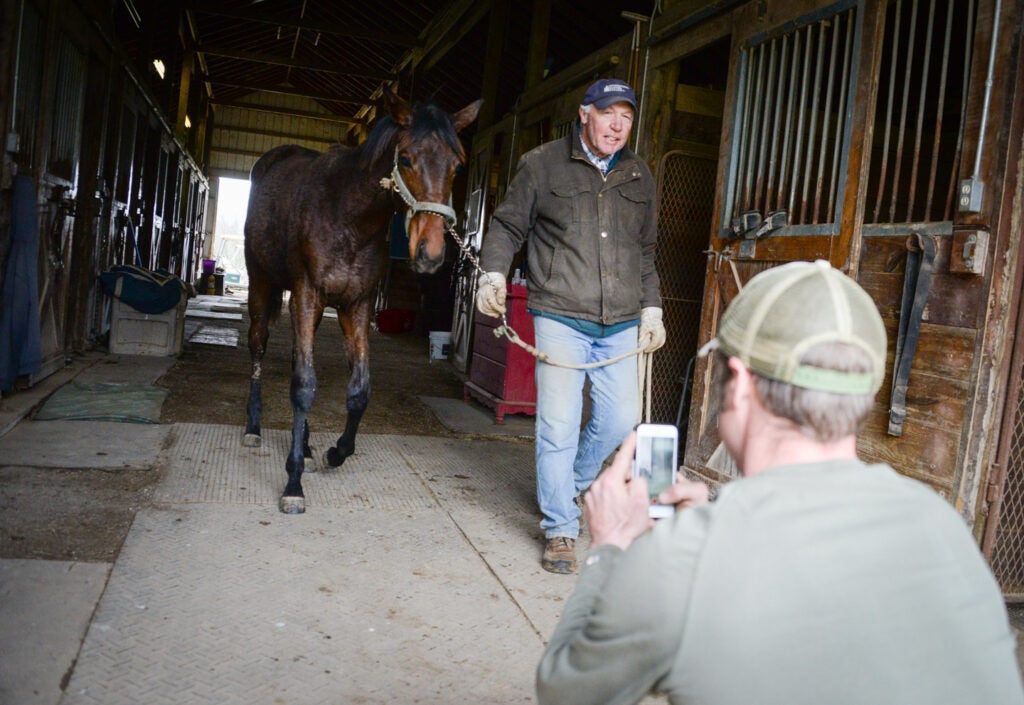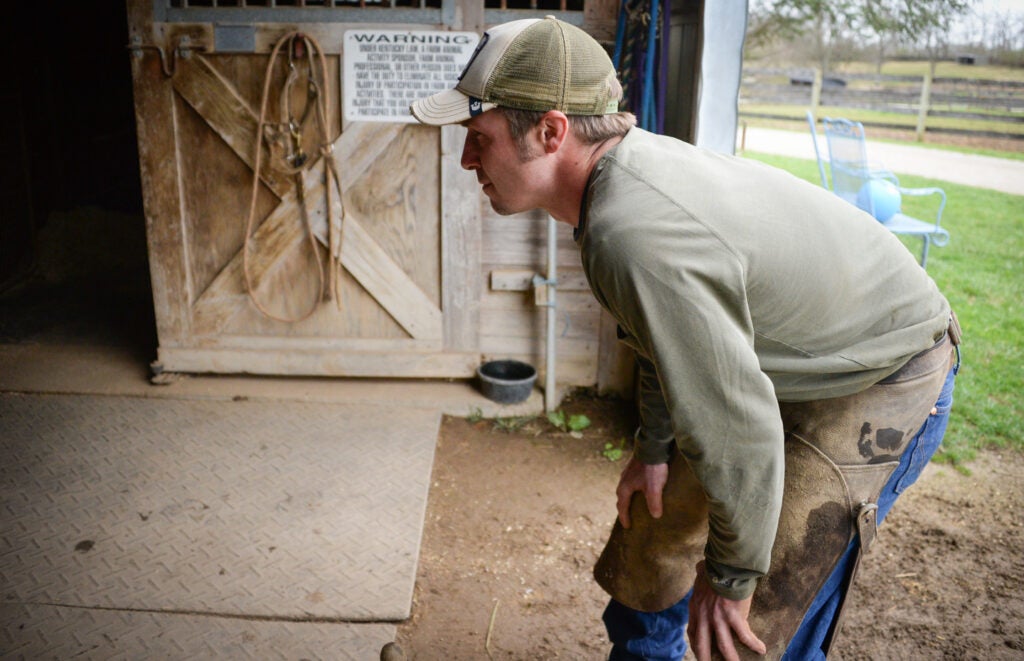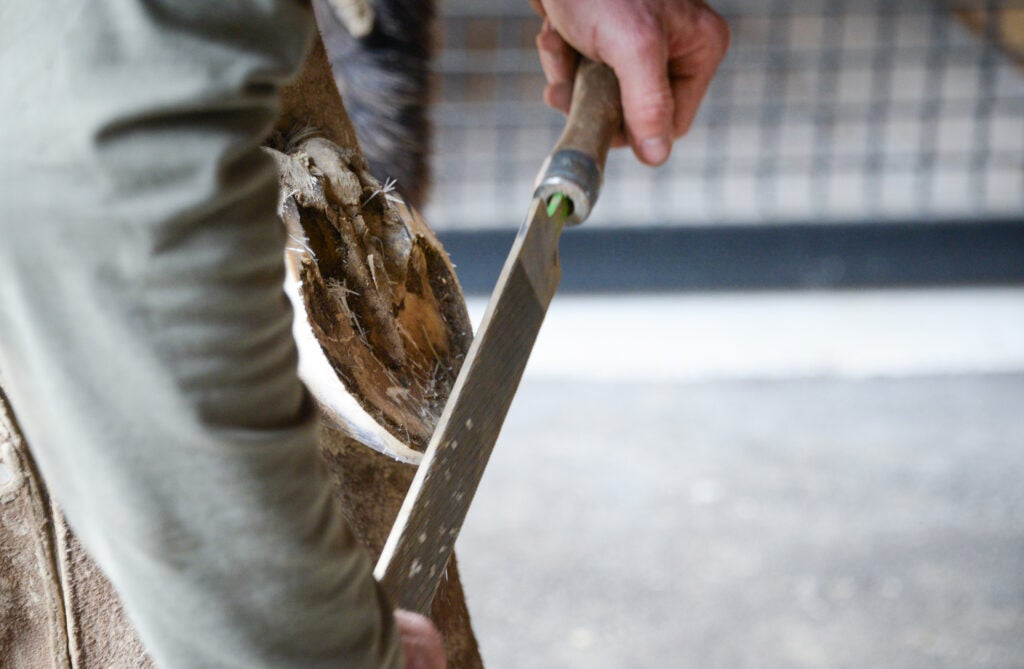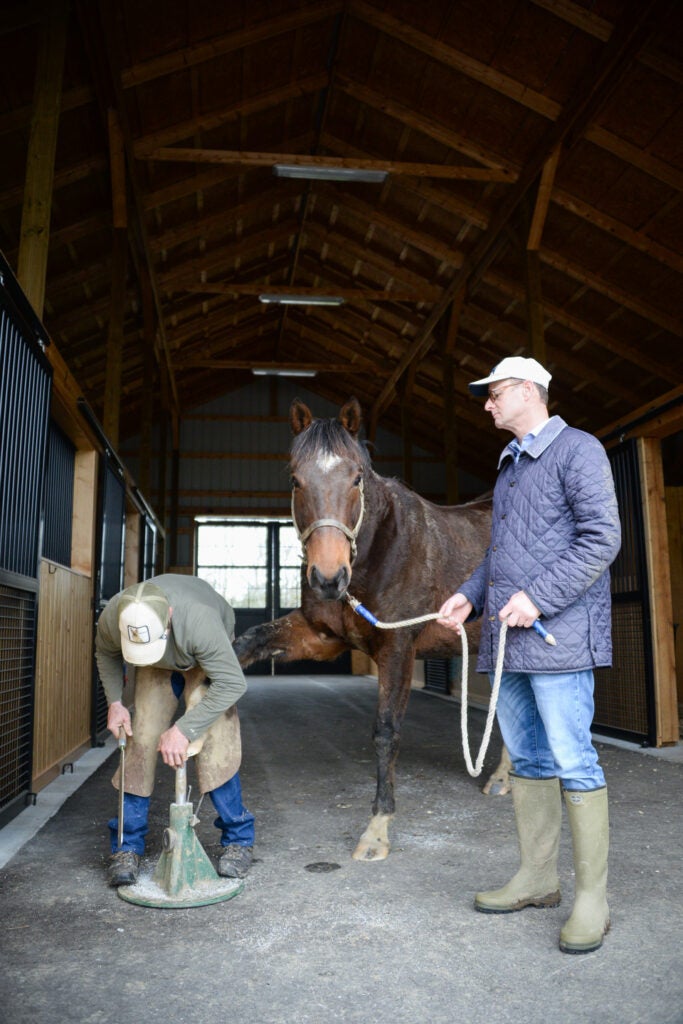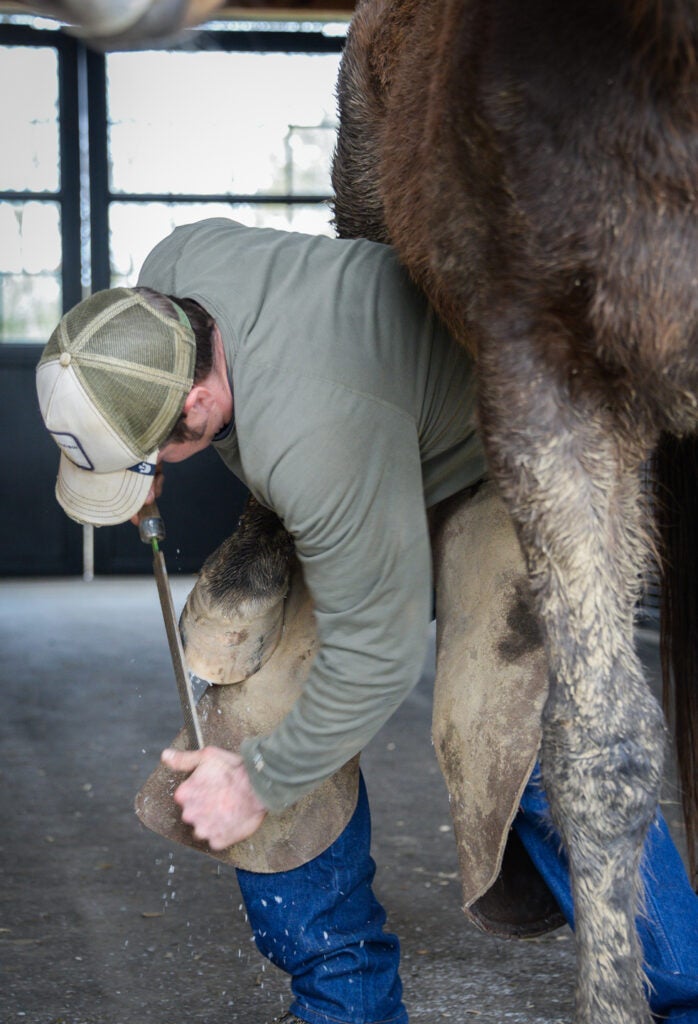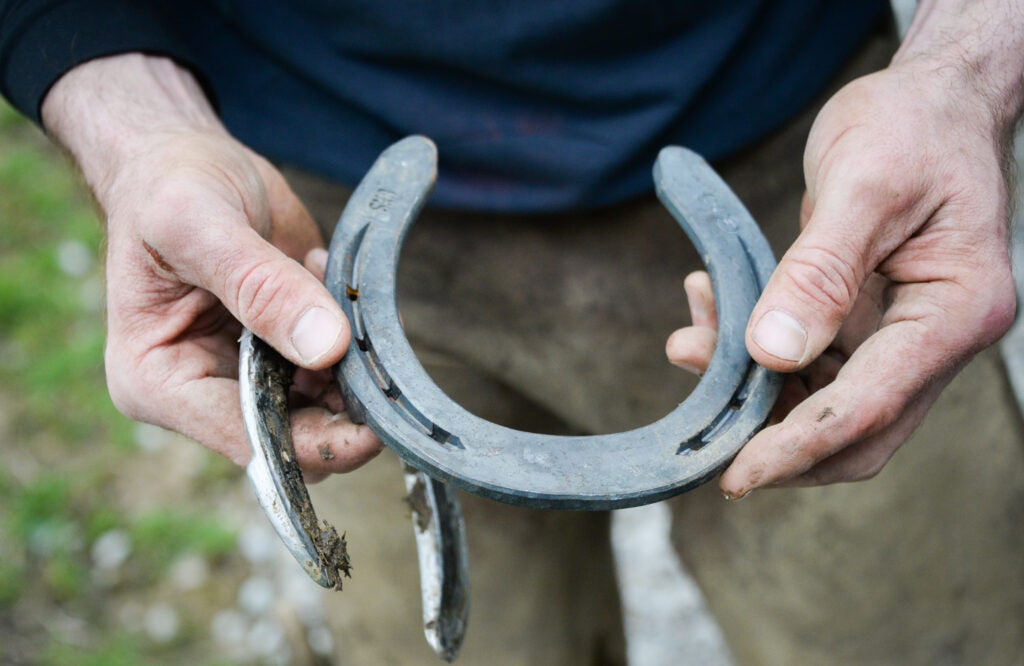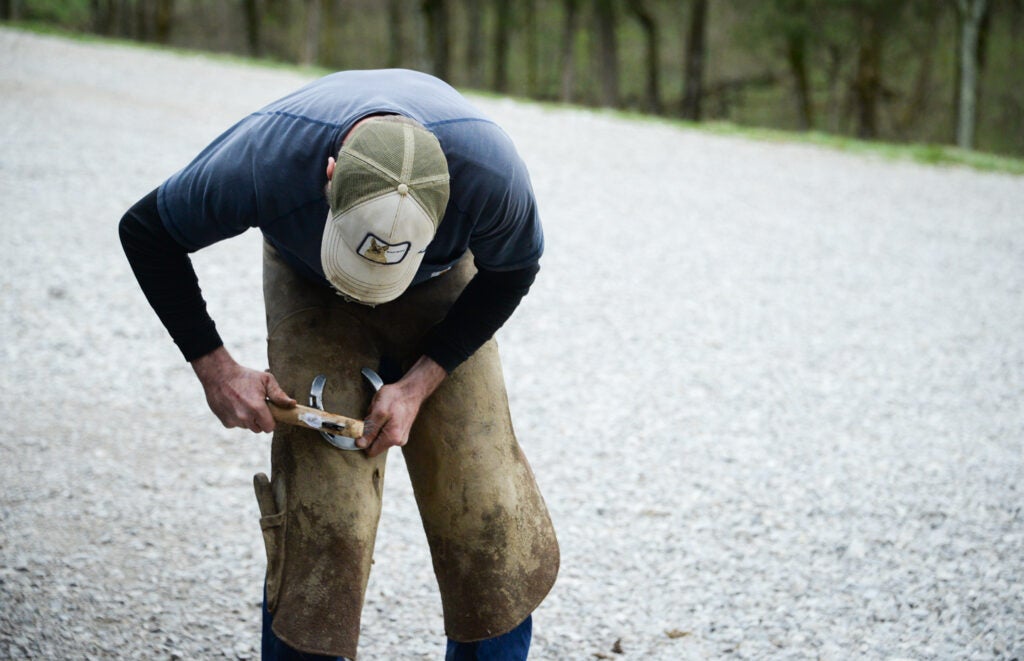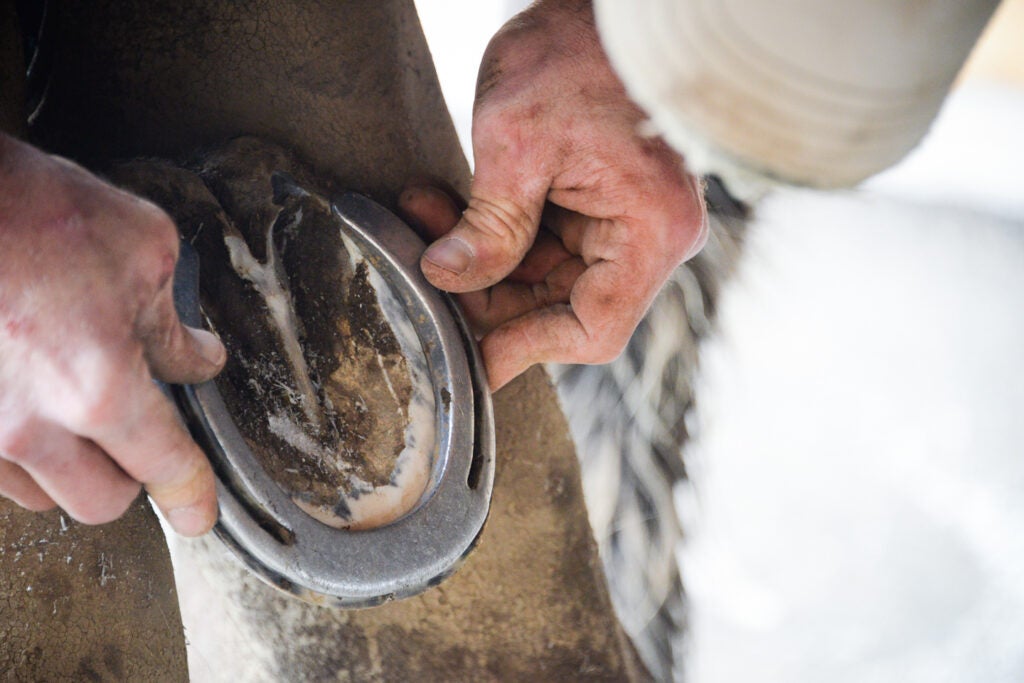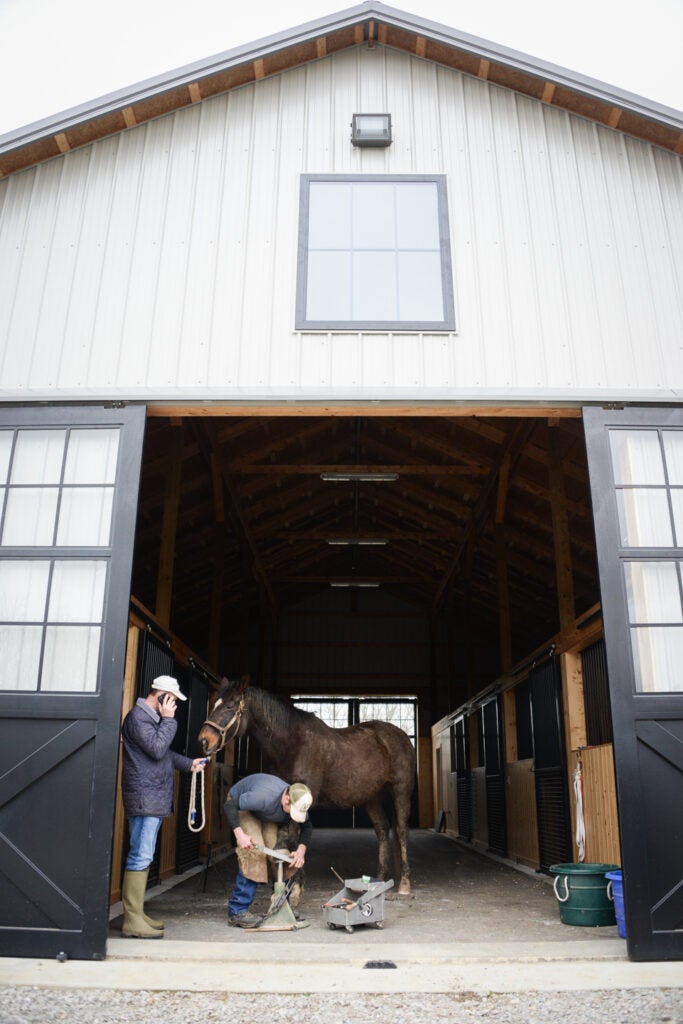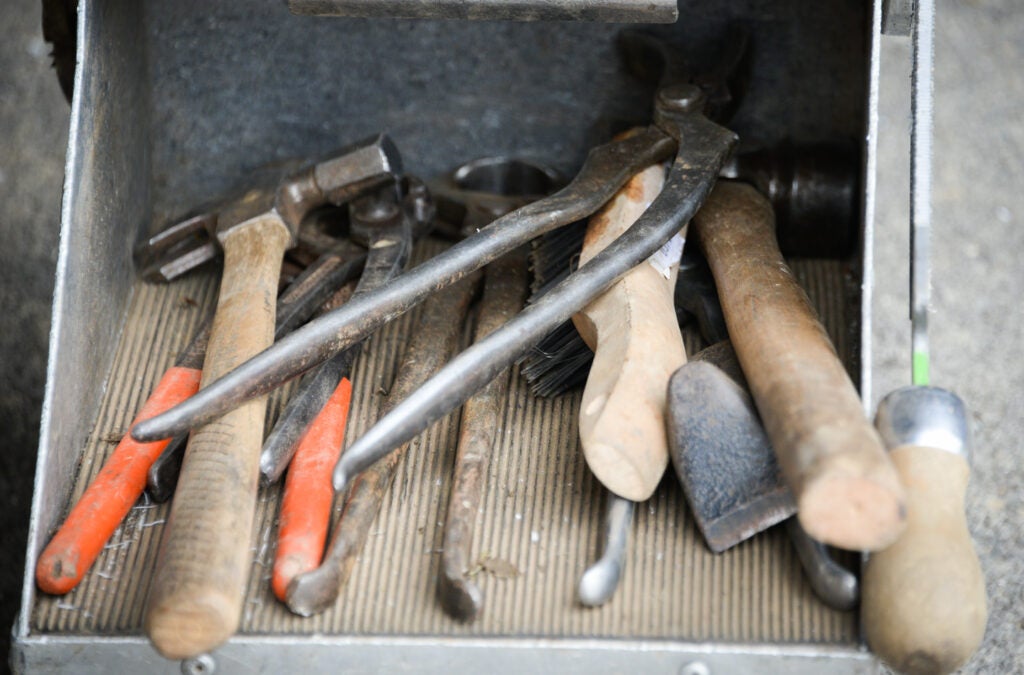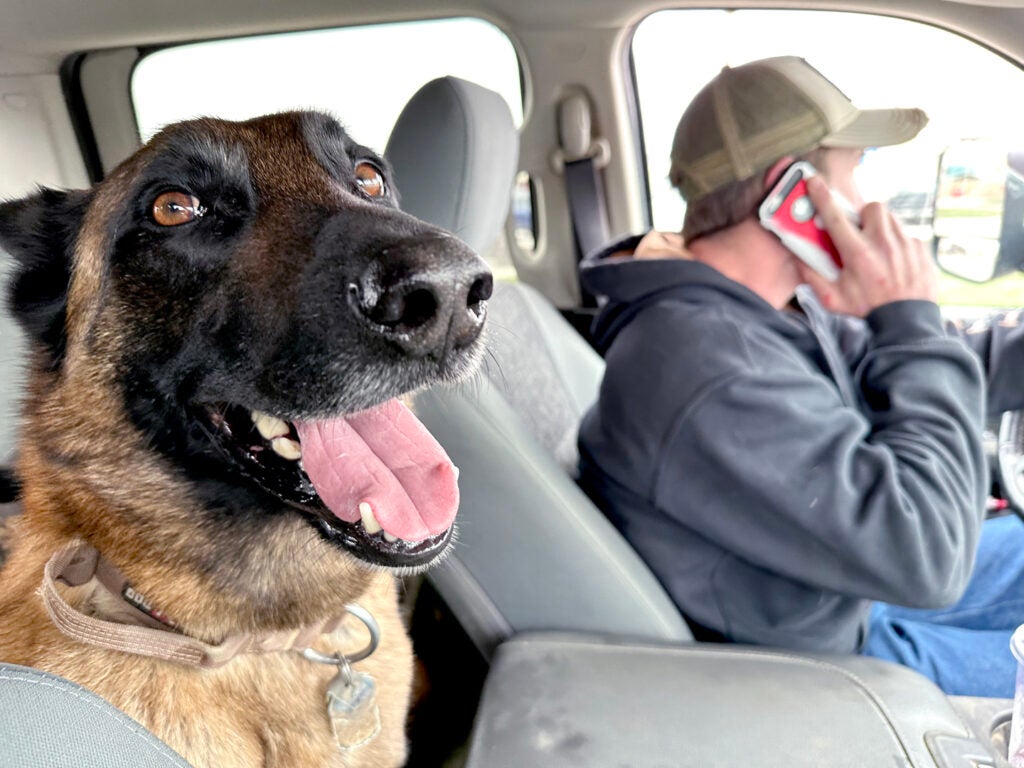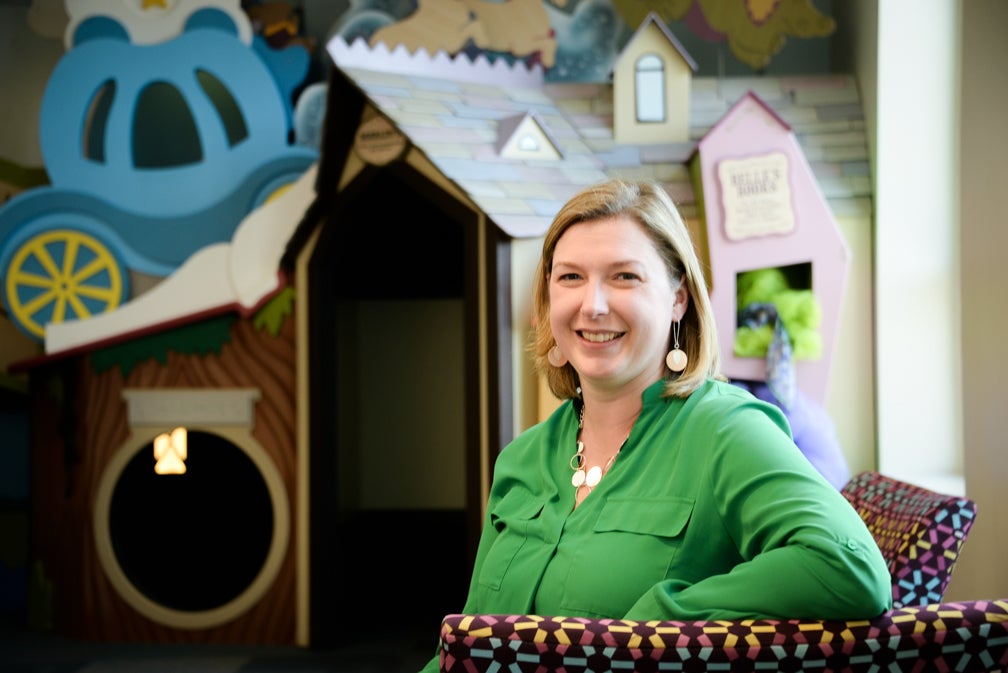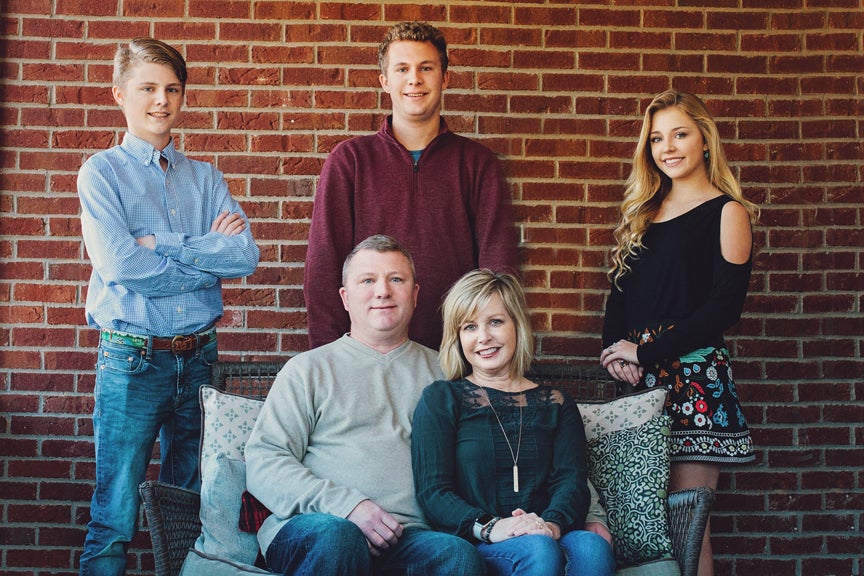Growing up in the middle of horse country, Chad Scott was naturally drawn to the equine industry.
“I was born and raised in Versailles,” Chad said. “I grew up in the country. We always had animals. We had a couple of horses that I would ride bareback.
“It’s a natural knack for me to crawl under a horse and not get hurt and to pick up on their body language.”
Like his father, Ken Scott, Chad, now in his mid-30s, is a full-time farrier serving several farms in Woodford and Fayette counties. During sale season in the fall, he finds himself shoeing yearlings at Keeneland, where he would frequent as a child with his mother, Linda Scott, who makes leather riding chaps and aprons.

“My mom would walk around Keeneland fixing chaps,” he said. Chad wears a leather apron his mother made for him when he’s working.
He graduated from Woodford County High School in 2008. He spent a couple of years in college at Bluegrass Community Technical College and the University of Kentucky before deciding college wasn’t for him.
He went to work for equine podiatry veterinarian Dr. Ric Redden in Versailles.
“I helped him maintain his farm and went on calls with him,” Chad said.
Redden designed a line of therapeutic horseshoes — a product Chad uses on some of the horses he tends to.
Eventually, Chad found himself learning diesel mechanics and worked for two years at R&M Truck Repair in Versailles and two years at Lexington Kentucky Freightlines. He worked as a diesel mechanic long enough so that he could secure a home loan. He currently lives in South Frankfort with his girlfriend of seven years, Melissa Costa. (Read about Melissa’s work in the Art & Culture section.)
Melissa and Chad began dating shortly after Chad decided to quit being a diesel mechanic and started his LLC working as a farrier full time.
“She has seen me progress and take big steps, and take a lot of risks,” Chad said. “She is extremely supportive.”
Early in his farrier career, Chad apprenticed with Andre O’Connel for three years, and continues to help him, on Burlesson Farms in Woodford County. He also worked with a group who oversaw farrier work at 12-14 different farms, he said.
One of his mentors early in his career was Steve Carpenter who he worked with at Royal Oak Farm in Paris and Timber Town in Lexington. Colby Tipton and Jim Bracto at Hunter Valley Farm in Versailles are also his mentors.
“If I ever have questions, I have about 15 numbers in my book that I can call,” he said.
Chad works mainly with thoroughbreds — trimming, setting and resetting shoes. He works with many different farms in central Kentucky, but has a core group of farms he caters to.
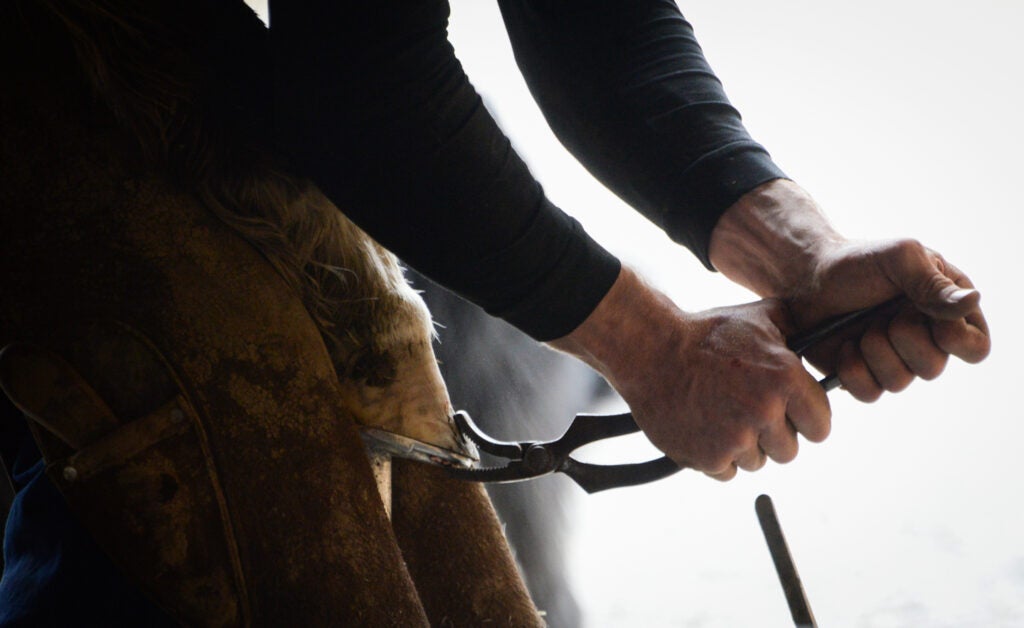
“I’m extremely fortunate to have a career in a high demand area,” he said.
Chad’s work picks up in the spring and stays busy through the summer. It slows down in the winter months.
“A horse grows hair in the winter and feet in the summer,” he said.
Another one of his mentors is Peter Fanahan Mcgrath who taught him how to shoe race horses at Skylight Training Center in Goshen.
At one point, McGrath asked Chad if he wanted to fly to Chicago for the weekend and shoe show horses for an owner.
“The guy flew me to Chicago when I got done working on a Friday,” he said. “I shoed 20 show horses and then he flew me back in a four-seater single-engine plane. I got back at midnight and had to be to work the next morning at 8.”
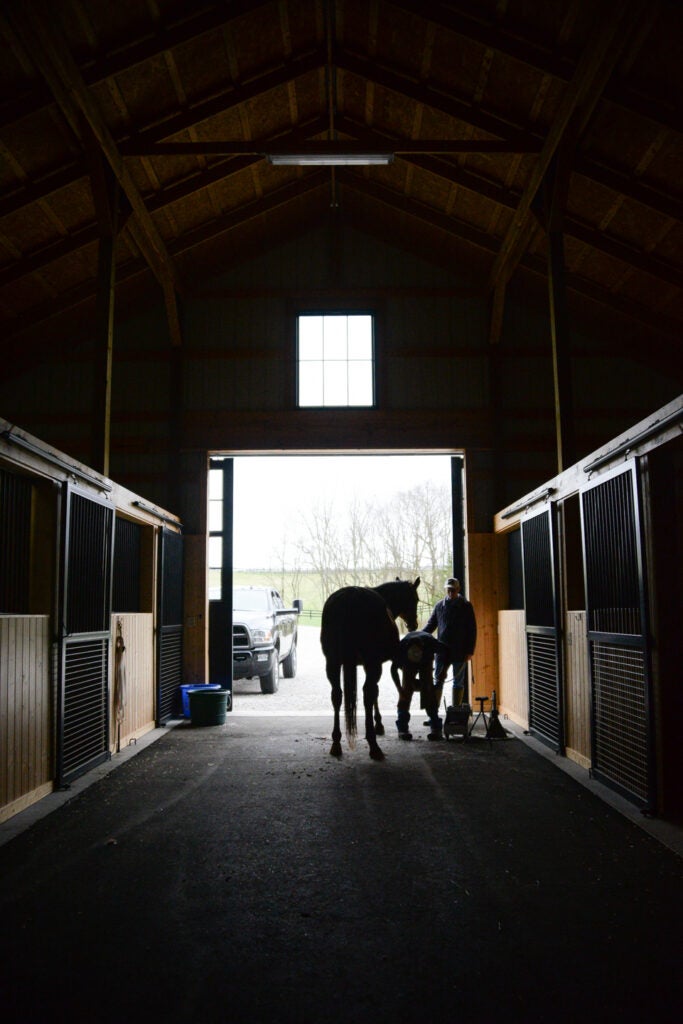
Another one of Chad’s highlights thus far in his career was when he trimmed Songbird at a sale. Songbird is a retired U.S. Hall of Fame Thoroughbred racehorse. The mare, foaled in April 2013, was a two-time Eclipse Award winner. She won 13 times, nine of them in Grade I races, and had career earnings of almost $4.7 million.
“Songbird is one of the coolest horses I’ve ever got to trim,” Chad said. “She sold for $9.5 million.”
Along with thoroughbreds, Chad also tends to donkeys, mules and draft horses.
Chad said most major horse farms will keep the horses barefoot unless they have a problem.
“Racing or performance horses get shoes on to protect their feet from getting sore,” he said. The aluminum shoes are reset every 30 days and replaced when worn out.
Chad said some horses have such bad feet that they must wear shoes to walk. One horse he and a client were working to fix had hooves so bad he wasn’t able to nail the shoe on.
“I was able to glue a pair of shoes on her and she walked off and seemed happy,” Chad said. “This horse has had years of chronic issues.”
Chad’s daily sidekick on his trips to various farms is his Belgian Malinois, Mercury, who he rescued from a kill shelter in Texas. One of Mercury’s favorite farms to visit is Marylou Whitney Stables, a retirement farm owned by John Hendrickson where Scott tends to about 20 retired racehorses.
“Mercury loves going to that farm,” Chad said. “He chases frogs in the creek.”
Along with his farrier work, Chad also has a small beef cattle operation in Salvisa.
“I have 14 cows and 14 baby cows at my farm,” he said. “I try to go every other day to check on them and feed them and put hay out in the winter.”
Chad was able to purchase the property with an agricultural business loan. His goal is to have the cattle farm be a turnkey operation. He said a meat processing facility is being built in Salvisa, where he plans to eventually have the cows processed.
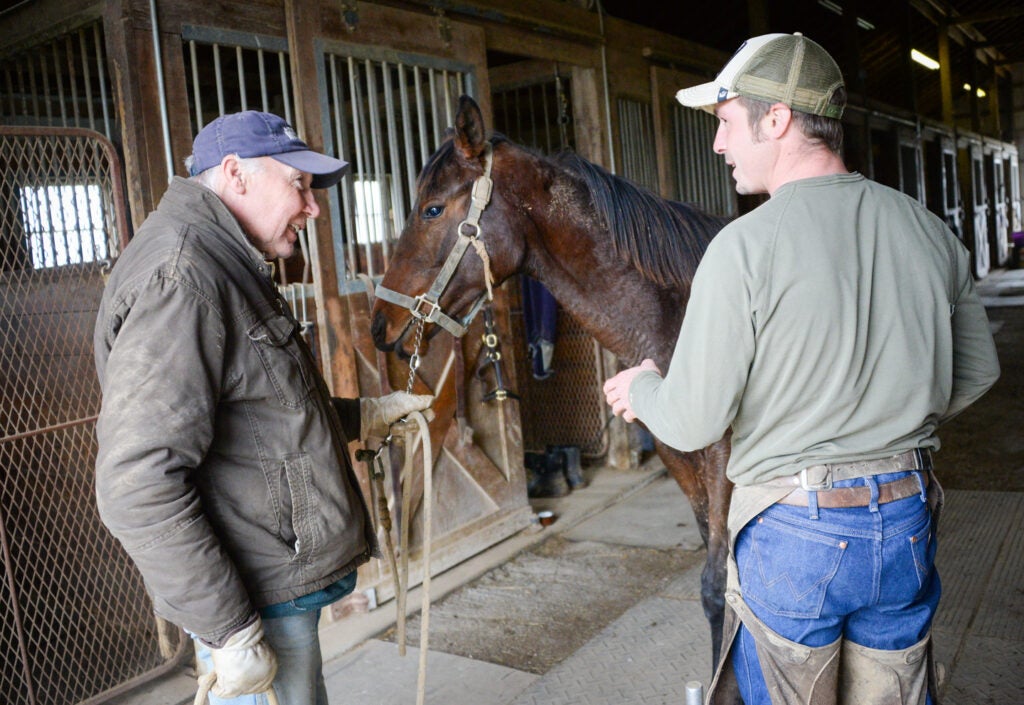
“I want to sell beef from healthy and happy cows,” he said.
Chad views his work as constantly improving himself and his business.
“It’s ongoing education,” he said. “I’m extremely fortunate to have a bit of luck in life. I take advantage of any opportunity that comes my way.”
Chad can be reached at wofo89@aol.com.
